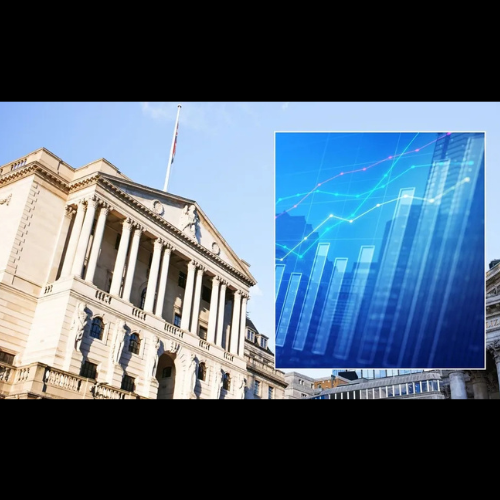For years, Wall Street watchdogs and retail traders have fixated on the usual suspects—Citadel, JPMorgan, and other financial behemoths—when sounding the alarm about dark pools: those opaque trading venues that allow large trades to fly under the radar of public exchanges. But a new exposé has flipped the script.
Thanks to an in-depth thread from market analyst and X (formerly Twitter) user @anna_trades, the financial world is waking up to a jarring possibility: the Financial Industry Regulatory Authority (FINRA) may not just be failing to regulate dark pools—it may be operating more of them than anyone else.
And that has retail investors furious.
Not Just the Referee—FINRA Might Be the Game
FINRA, the organization tasked with overseeing brokerage firms and ensuring fair play in U.S. markets, is now under intense scrutiny. According to @anna_trades, armed with a detailed ChatGPT 4.0-assisted analysis, FINRA is running a sprawling network of shadowy trading venues. These include:
XADF (Alternative Display Facility): A non-exchange platform for off-exchange trades.
OTCBB (Over-the-Counter Bulletin Board): Allegedly defunct but reportedly still active in market data feeds.
OOTC/OTC OTHER: A favorite for routing trades away from public view.
OTC-UTP: A mechanism for executing National Market System (NMS) trades off the tape, hidden from retail view.
While these systems may sound like relics or technical details, they are the backbone of how trades can be masked, delayed, or fragmented across opaque channels—limiting price discovery and potentially allowing manipulation behind closed doors.
Anna summarizes it bluntly: “FINRA is the player, the referee, and the stadium.”
Why This Matters to You: Retail Investors at Risk
Dark pools aren’t inherently illegal—they serve a purpose, such as preventing price swings from massive trades—but their secrecy makes them ripe for abuse. When the referee starts operating the game itself, trust evaporates.
Retail investors, particularly those who lived through the GameStop ($GME), AMC ($AMC), and Meta Materials ($MMTLP) controversies, see this revelation as yet another crack in a system that already feels stacked against them.
What’s at stake? Anna warns that these dark venues don’t just distort pricing—they can put your retirement, your pension, and your Thrift Savings Plan (TSP) at risk.
“This isn’t just about stocks,” one user posted. “This is about our future being siphoned off in the shadows while regulators look the other way—or worse, run the whole show.”
A Community Unites: Social Media Demands Accountability
The post from @anna_trades sparked a wildfire across the social finance space. Support poured in from fellow retail advocates:
@kshaughnessy2 called the investigation “outstanding.”
@BAMinvestor encouraged relentless pursuit: “Keep the pressure on them.”
@RippleWon1589 said, “You’re blowing the lid off, Anna… FINRA’s dark pool game is up!”
Others likened FINRA to a “mafia” or one of Wall Street’s “five families.”
The common theme? A growing belief that retail investors are operating in a market riddled with conflicts of interest—where transparency is optional, and regulators are indistinguishable from the firms they oversee.
The Elephant in the Room: A Dangerous Conflict of Interest
The most damning claim in Anna’s analysis isn’t just about hidden trading systems—it’s about FINRA’s structural conflict of interest.
As a self-regulatory organization (SRO), FINRA not only enforces rules but allegedly competes with the very firms it regulates. That includes powerhouses like Citadel and Virtu, which use the same systems FINRA manages. It’s a setup that almost guarantees a lack of impartiality, with little oversight from Congress or independent bodies.
Even more troubling, Anna asserts, is the SEC’s silent partnership. “The SEC is part of it,” she claims, suggesting the agency writes loopholes that let the system persist.
If true, this is not just a regulatory failure—it’s a systemic vulnerability.
What Happens Now? Calls for Federal Intervention
Anna’s investigation doesn’t end with revelations—it ends with a demand for action.
“PLEASE SHARE & CALL CONGRESS NOW! DEMAND AN INVESTIGATION. I have the evidence to SHUT FINRA DOWN FOREVER.”
Retail traders are echoing that call, urging Congress, the Department of Justice, and even the President to investigate FINRA’s dual role and potentially dismantle the shadow trading infrastructure operating beneath U.S. markets.
Final Thoughts: Time to Reclaim the Game
If these claims hold water, the implications are enormous. FINRA—a name that once meant oversight and integrity—may be operating one of the most powerful and least transparent trading networks in existence. Worse yet, it may be doing so with impunity, shielded by its self-regulatory status and a lack of public awareness.
The outcry from retail traders is not just about lost dollars—it’s about lost faith in the very institutions meant to protect them.
This is more than a market story. It’s a call for sunlight in a system that desperately needs it.
Want to take action? Share this article, tag your representatives, and demand transparency. The market only works when it works for everyone.
by Steve Macalbry
Senior Editor,
BestGrowthStocks.Com
Disclaimer: The author of this article is not a licensed financial advisor. This article is intended for informational purposes only. It should not be considered financial or investment advice. We have not been compensated for the creation or distribution of this article and we do not hold any form of equity in the securities mentioned in this article. Always consult with a certified financial professional before making any financial decisions. Growth stocks carry a high degree of risk, and you could lose your entire investment.







